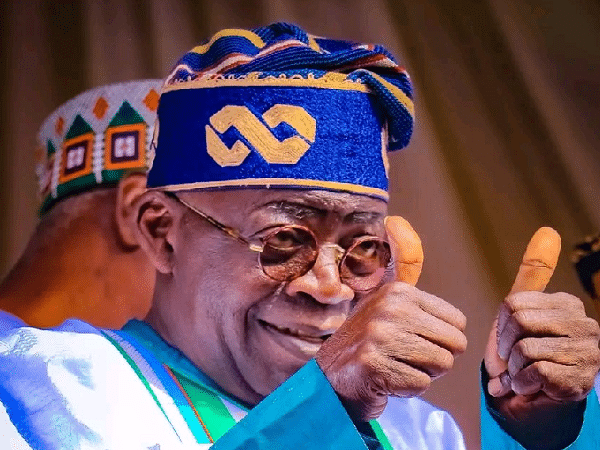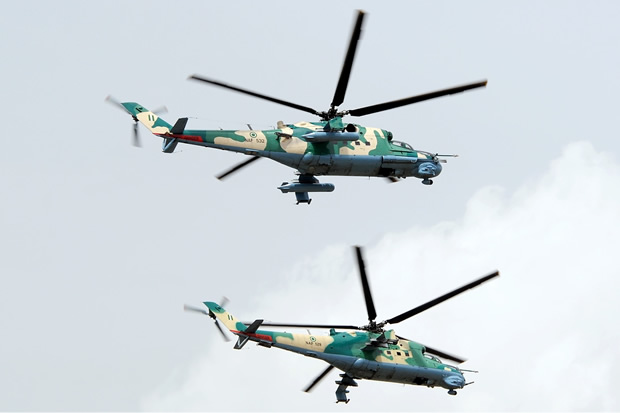As the curtain falls on the Paris 2024 Olympics, millions of Nigerians have been wondering what comes next. Nigeria’s previous successes and heroics in the Olympics are well documented. In individual and team sports, Nigeria has had an impressive track record of modest achievements, making this year’s lean harvest all the more painful. However, when it comes to how great nations deal with disappointments, memories can inspire a great comeback. For example, in track and field events, no one will forget the ‘Golden Police Woman’ Chioma Ajunwa, who was the first athlete to win a gold medal for Nigeria and the first black African woman to win an Olympic gold medal in a field event, achieving this feat in the women’s long jump. She established a championship record of 7.12m, which stood unbroken for some time. Enefiok Udo-Obong also made history in the 4x400m men’s relay at Sydney 2000 and Athens 2004.
Udo-Obong stands out as the first and, to date, the only Nigerian man to win two Olympic medals: a gold at the 2000 Summer Olympics and a bronze at the 2004 Summer Olympics. In 2000, he ran the final leg of the 4x400m relay, propelling Nigeria from fourth to second place, alongside Clement Chukwu, Jude Monye, and Sunday Bada. Initially finishing behind the USA, Nigeria was later awarded the gold medal after the International Olympic Committee disqualified the USA team following Antonio Pettigrew’s admission of using performance-enhancing drugs. In the 2004 Athens Games, Udo-Obong again ran the anchor leg, this time with James Godday, Musa Audu, and Saul Weigopwa, clinching a bronze medal for Nigeria.
The graceful and elegant Mary Onyali-Omagbemi and the spirited Falilat Ogunkoya have also left their marks. Onyali-Omagbemi secured a bronze medal in the 4x100m relay at the 1992 Olympic Games with teammates Beatrice Utondu, Christy Opara-Thompson, and Faith Idehen. She went on to win another bronze in the women’s 200m at the 1996 Olympic Games in Atlanta. Her record of competing in five consecutive Olympics from 1988 to 2004 set her apart as the first Nigerian to achieve this feat. Additionally, she claimed the 100m title at the 1994 Commonwealth Games.
In 1996, Ogunkoya returned from the Atlanta Games with two medals, securing silver in the women’s 4x400m relay and bronze in the 400m, becoming the first Nigerian to win an individual Olympic track and field medal. Despite finishing behind Marie-José Pérec of France and Cathy Freeman of Australia, her time of 49.10s set a personal best and an African record at the time. She also claimed four African titles in the 200m and 400m events. Gloria Alozie added to Nigeria’s medal tally with a silver in the women’s 100m hurdles, clocking 12.68s at the Sydney 2000 Games. She is a two-time African Champion and, after switching nationalities, won the European Championship representing Spain in 2002.
The legendary 400m runner Innocent Egbunike led Nigeria to its first-ever relay medal at the 1984 Los Angeles Games. Egbunike, along with Sunday Uti, Moses Ugbesie, and Rotimi Peters, clinched bronze in the men’s 4x400m final. Also noteworthy is the team of Chidi Imoh, Olapade Adeniken, and Davidson Ezinwa, who earned silver for Nigeria in the 4x100m relay at the Barcelona 1992 Games, marking a historic performance for the nation.
Nigeria has enjoyed success in boxing with Nojeem Maiyegun (Tokyo 1964), Isaac Ikhouria (Munich 1972), Peter Konyegwachie (Los Angeles 1984), and Duncan Dokiwari (Atlanta 1996). The relay team comprising Franca Idoko, Gloria Kemasuode, Halimat Ismaila, Oludamola Osayomi, and Agnes Osazuwa secured Nigeria’s last relay medal at the 2008 Games, earning silver in Beijing. Additionally, Chika Chukwumerije in taekwondo, Mariam Usman in weightlifting, Blessing Oborududu in wrestling, and Ese Brume in long jump have all claimed medals for Nigeria at the Olympics. Nigeria has definitely left an indelible mark in football, with the “Dream Team” securing Africa’s first men’s Olympic gold in Atlanta in 1996, followed by a silver in Beijing in 2008, and a bronze in 2016.
Nigeria stands at the threshold of a new era in sports. While the games provided a unique platform for our athletes to showcase their talents on a global stage, they also highlighted the potential that Nigeria holds in the world of sports. The future, undoubtedly, looks bright. Under the visionary leadership of Senator Owan Enoh, the Ministry of Sports is already paving the road toward long-term success. Minister Enoh’s proactive approach is set to transform the sporting landscape in Nigeria, ensuring that our athletes receive the support and resources they need to excel in future competitions. His commitment to reorganising the Sports Federations will bring about improved efficiency and create an environment where talent can thrive.
One of the most inspiring stories to emerge from Paris 2024 is the discovery of Rena Wakama, a 32-year-old female basketball coach who chose to represent Nigeria over her birthplace in the United States. Her dedication and passion for her fatherland are testaments to the wealth of talent Nigeria possesses. Wakama’s leadership and vision have not only brought pride to the nation but also set a standard for future generations. This is a prime example of how identifying and nurturing Nigerian talent, whether at home or abroad, can lead to remarkable achievements.
Moreover, Nigeria’s near-clean slate at the Olympics in terms of adherence to fair play is commendable. Over 80 Nigerian athletes competed with integrity, upholding the values of sportsmanship and setting an example for the world. This demonstrates the country’s commitment to fostering a culture of excellence that extends beyond mere participation. The performance of Nigeria’s basketball team, with one player making it to the prestigious “Olympic Team,” is another significant milestone. It underscores the potential within our sports community and the importance of continued investment in developing our athletes.
Looking ahead, the focus is on infrastructure development, a critical component of Minister Enoh’s vision. Nigeria’s need to bring its sporting facilities up to global standards has never been more compelling. The commitment to redeveloping these infrastructures will not only benefit our athletes but also position Nigeria as a key player in international sports. This investment will ensure that future generations have access to the best training environments, enabling them to compete and win on the world stage.
In conclusion, as Nigeria awaits the Los Angeles Olympics after Paris 2024’s poor outing, it marks the beginning of a new chapter for Nigerian sports. The dedication, talent, and potential demonstrated by our athletes and sports officials should lay the groundwork for a future where Nigeria can consistently rank among the world’s sporting elites. With strategic leadership, infrastructural development, and unwavering support for our athletes, the next Olympics promises to be a showcase of Nigeria’s sporting excellence. The journey has just begun, and the best is yet to come.

 3 months ago
92
3 months ago
92















 English (US) ·
English (US) ·